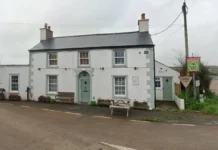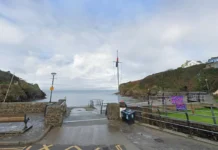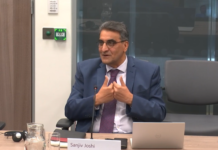The Farmers’ Union of Wales is to discuss the merits and drawbacks of limiting the amount of carbon credits that can be sold from Welsh land, carbon trading quotas and other approaches that might be applied in Wales.
During a recent meeting of the FUW’s Land Use and Parliamentary Committee, members expressed extreme concern that a large proportion of the carbon locked and sequestered in Welsh land could be sold to other countries and companies outside Wales, undermining the ability of Welsh agriculture or even Wales as a whole to become carbon neutral.
They also highlighted ongoing concerns that Welsh farms were being purchased by companies from outside Wales in order to cash in on Wales’ carbon.
The committee therefore agreed that a quota system should be introduced to reduce this risk, and it was agreed at a subsequent meeting of the FUW’s Presidential Policy Team that the pros and cons of such limits should be the subject of detailed discussion by all FUW committee chairmen and the presidential team.
FUW President Glyn Roberts said:
“Selling carbon credits to businesses looking to offset their carbon emissions may represent a profitable option or even a lifeline for some farmers.
“However, the same carbon cannot then be used to offset a farm’s own carbon emissions, and members are concerned that a rush to sell off carbon could hamper future generations’ ability to meet net-zero targets.”
Mr Roberts said there was even a concern that Wales as a whole could ‘sell the family jewels’, undermining the nation’s ability to offset carbon emissions.
“It would be counter-intuitive and a potential disaster if we sold off the carbon we store and sequester in Wales to businesses in other countries, and in so doing force our own businesses to buy carbon credits from other countries in future at inflated costs,” said Mr Roberts.
However, members of the union’s Presidential Policy Team highlighted the complexity and potential unforeseen consequences of introducing restrictions and quotas.
FUW Vice President Dai Miles said:
“Quotas can have a wide range of complex consequences for businesses, as seen with the introduction of milk quotas in the 1980s, and this is an issue where we need to tread carefully.
“Quotas can artificially inflate or reduce the value of a commodity, depending on the circumstances, while introducing complex bureaucracy and limiting our ability to sell when markets are high, and we do not want to see Welsh farmers disadvantaged.”
Speculation about future carbon trading is believed to be a major driving force behind the purchase of large areas of Welsh farmland for tree planting by companies and individuals from outside Wales, raising concerns that a land grab is underway that will disenfranchise Welsh communities and strip them of their carbon assets.
Such concerns were recently reflected in a BBC report which revealed that twelve farms had been bought in mid Wales by companies outside of the country which aimed to largely plant trees on the land.
“A key question is whether a proportion of the carbon we sequester on our land should be ring-fenced to agriculture first and foremost, with a further proportion ringfenced to Welsh companies or bodies – or should it just be a free market without any such limits or quotas?” said FUW Land Use and Parliamentary Committee Chairman Tudur Parry.
Many carbon offsetting contracts, Mr Parry explained, are very long term commitments, which raises further issues for the next generations of farmers.
“For example, a farmer could plant a large area of trees and sell the carbon credits to a foreign company. However, a carbon neutral requirement may be introduced in the future for all businesses, and Welsh Government already has a Net Zero target by 2050.
“But if the farmer has already sold those carbon credits abroad, the figures cannot be used to offset their own emissions, nor meet Welsh targets,” he said.
Mr Roberts said:
“This is clearly a highly complex area with many internal and external factors to be considered, and it warrants thorough discussion.
“It will therefore be discussed by our twelve county executive committees and in a special meeting of committee chairmen and the presidential team in order to investigate what policy options the union should support in order to protect both the short and long term interests of our industry and Wales as a whole.”
Help keep news FREE for our readers
Supporting your local community newspaper/online news outlet is crucial now more than ever. If you believe in independent journalism, then consider making a valuable contribution by making a one-time or monthly donation. We operate in rural areas where providing unbiased news can be challenging. Read More About Supporting The West Wales Chronicle

























